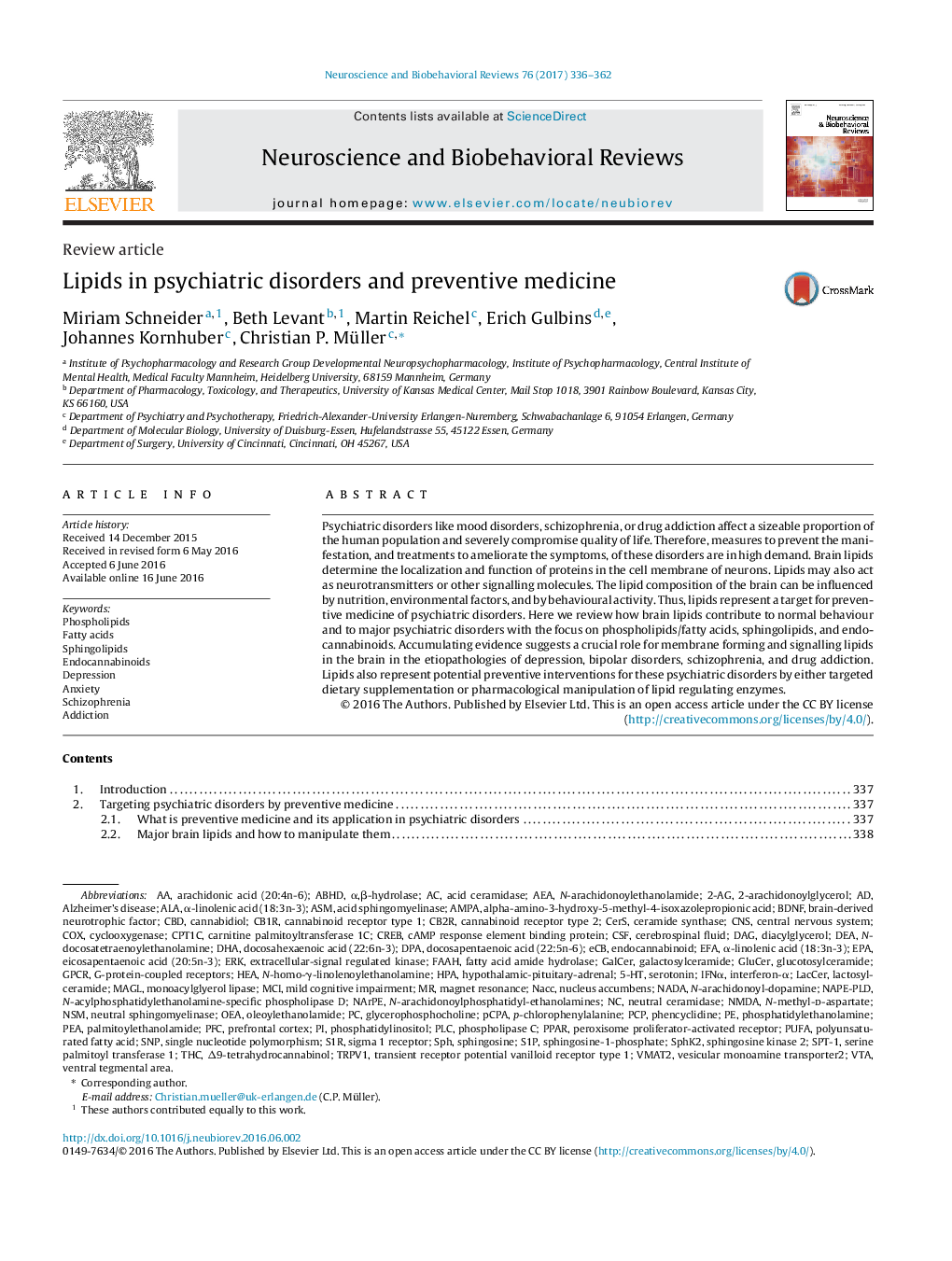| Article ID | Journal | Published Year | Pages | File Type |
|---|---|---|---|---|
| 5043722 | Neuroscience & Biobehavioral Reviews | 2017 | 27 Pages |
â¢Lipid systems provide a target for preventive medicine of psychiatric disorders.â¢We review how brain lipids contribute to major psychiatric disorders.â¢The focus is on phospholipids/fatty acids, sphingolipids, and endocannabinoids.â¢There is a crucial role for brain lipids in depression, schizophrenia, and drug addiction.â¢Preventive medicine approaches predominantly target life style, diet, and stress.
Psychiatric disorders like mood disorders, schizophrenia, or drug addiction affect a sizeable proportion of the human population and severely compromise quality of life. Therefore, measures to prevent the manifestation, and treatments to ameliorate the symptoms, of these disorders are in high demand. Brain lipids determine the localization and function of proteins in the cell membrane of neurons. Lipids may also act as neurotransmitters or other signalling molecules. The lipid composition of the brain can be influenced by nutrition, environmental factors, and by behavioural activity. Thus, lipids represent a target for preventive medicine of psychiatric disorders. Here we review how brain lipids contribute to normal behaviour and to major psychiatric disorders with the focus on phospholipids/fatty acids, sphingolipids, and endocannabinoids. Accumulating evidence suggests a crucial role for membrane forming and signalling lipids in the brain in the etiopathologies of depression, bipolar disorders, schizophrenia, and drug addiction. Lipids also represent potential preventive interventions for these psychiatric disorders by either targeted dietary supplementation or pharmacological manipulation of lipid regulating enzymes.
